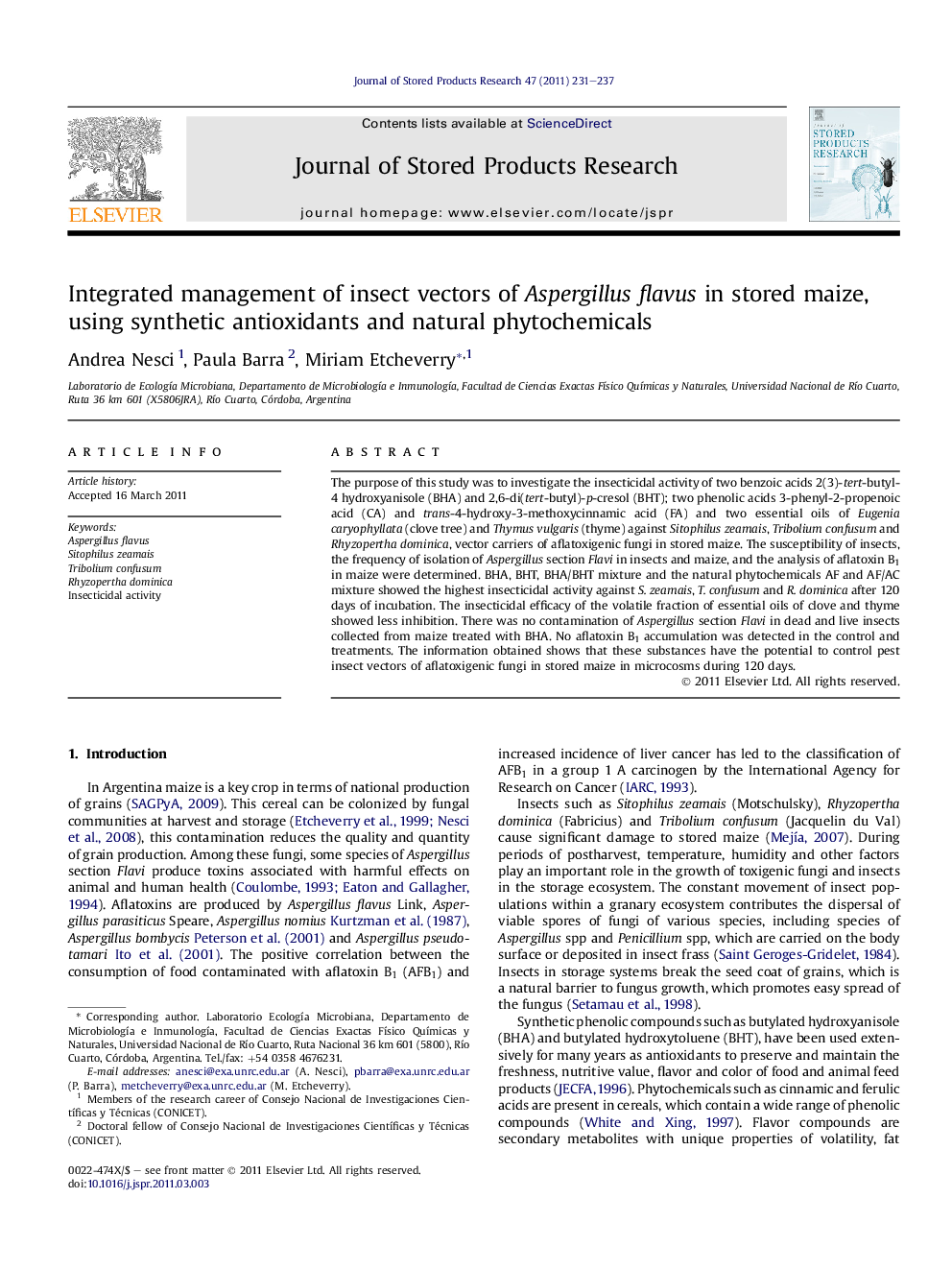| Article ID | Journal | Published Year | Pages | File Type |
|---|---|---|---|---|
| 4517212 | Journal of Stored Products Research | 2011 | 7 Pages |
The purpose of this study was to investigate the insecticidal activity of two benzoic acids 2(3)-tert-butyl-4 hydroxyanisole (BHA) and 2,6-di(tert-butyl)-p-cresol (BHT); two phenolic acids 3-phenyl-2-propenoic acid (CA) and trans-4-hydroxy-3-methoxycinnamic acid (FA) and two essential oils of Eugenia caryophyllata (clove tree) and Thymus vulgaris (thyme) against Sitophilus zeamais, Tribolium confusum and Rhyzopertha dominica, vector carriers of aflatoxigenic fungi in stored maize. The susceptibility of insects, the frequency of isolation of Aspergillus section Flavi in insects and maize, and the analysis of aflatoxin B1 in maize were determined. BHA, BHT, BHA/BHT mixture and the natural phytochemicals AF and AF/AC mixture showed the highest insecticidal activity against S. zeamais, T. confusum and R. dominica after 120 days of incubation. The insecticidal efficacy of the volatile fraction of essential oils of clove and thyme showed less inhibition. There was no contamination of Aspergillus section Flavi in dead and live insects collected from maize treated with BHA. No aflatoxin B1 accumulation was detected in the control and treatments. The information obtained shows that these substances have the potential to control pest insect vectors of aflatoxigenic fungi in stored maize in microcosms during 120 days.
► Sitophilus zeamais, Tribolium confusum and Rhyzopertha dominica are vector carriers of aflatoxigenic fungi on stored maize. ► Benzoic acids and phenolic acids are effective insecticides. ► Food grade antioxidants and natural phytochemicals showed the highest insecticidal activity against S. zeamais, T. confusum and R. dominica after 120 days of incubation. ► The insecticidal efficacy of the volatile fraction of essential oils of clove and thyme showed less inhibition.
